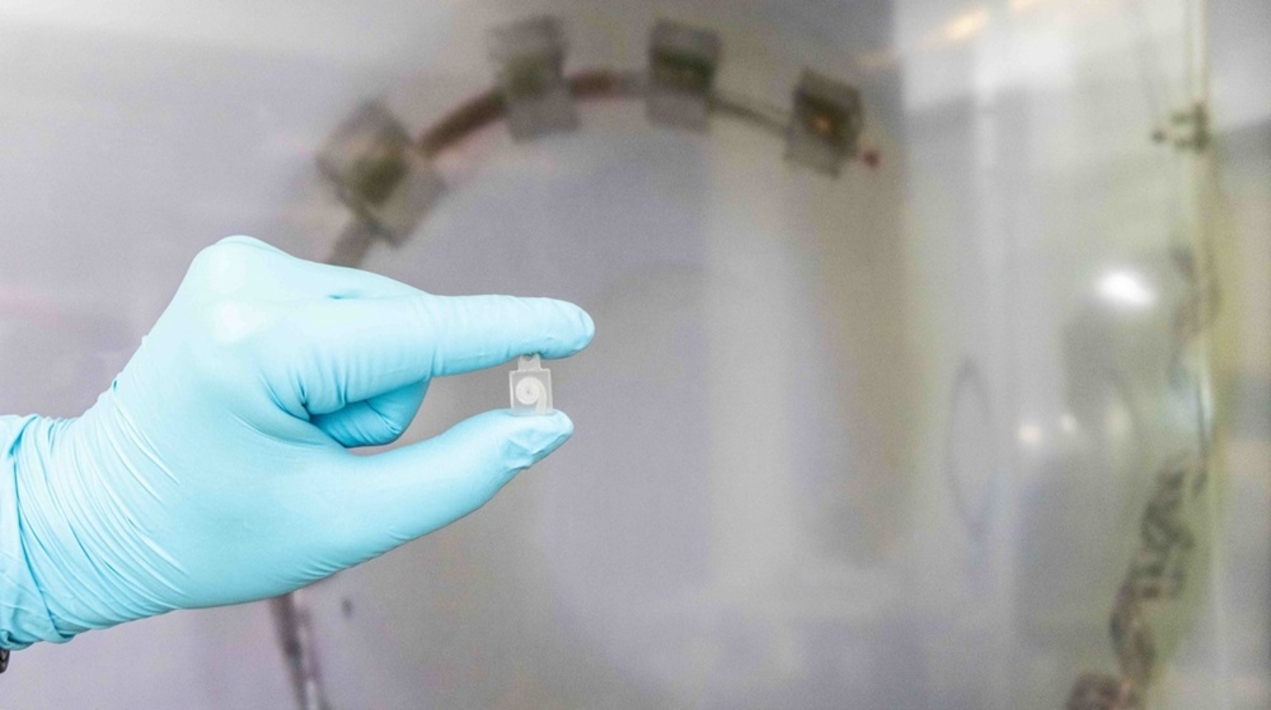
The Hong Kong Polytechnic University (PolyU) has made a breakthrough development in optical fibre sensors, making the advanced railway safety monitoring technologies available for medical surveillance inside the human body.
The research team led by Professor Hwa-yaw TAM, Chair Professor of Photonics and Head of the Department of Electrical Engineering at PolyU, developed the novel fibre optic microsensors that are biocompatible, supple and extremely sensitive to very small pressure changes inside the human body.
The new sensors open new possibilities for medical applications, from improving surgery precision to providing novel ways of monitoring human body recovery from within the body. Examples include smart cochlear implantation, bone fracture recovery monitoring, or navigation monitoring in cardiac catheterisation.
Optical fibres are not just for transmission – they are also good sensors for detecting external changes by observing the reflection of the light beams passing through them. There is also a growing use of fibre optics technology in medical applications, such as in surgical instrumentation, diagnostic and imaging equipment, or sensor-based wearable medical devices.
However, to deploy fibre optic sensing technology for monitoring inside the human body, traditional optical fibres made of glass or plastic have major drawbacks – glass is too stiff and brittle, while traditional plastic fibres tend to absorb water. Furthermore, the optical fibre sensors need to be able to detect very subtle changes for medical monitoring.
Professor Tam’s team made a critical breakthrough by basing their novel fibre optic sensors on an advanced plastic material, ZEONEX, that solves the problems of glass and traditional plastic. In addition, the new sensor is made more sensitive by adding a side hole running in parallel with the light transmission path inside the optical fibre.
The new “Side Hole Polymer Optical Fibre Sensors” are biocompatible and could be made as small as a few micrometres. Their sensitivity to pressure is twenty times that of traditional optical fibre sensors.
The sensors enable whole new applications for medical monitoring inside the human body not available before. They are humidity insensitive, supple and shatter-resistant. They are also chemically inert, biocompatible, and can be made super tiny in size. These unique features make the sensors ideal for integration with medical implants.
The new plastic optical fibre sensors can detect extremely subtle changes even of a difference smaller than 1 per cent of atmospheric pressure-sensitive enough to measure the pressure inside the lungs while breathing, which changes by just a few kilopascals.
The research team is currently working with counterparts from Australian and Japanese universities to develop various sensors for medical monitoring applications. For instance, a smart cochlear implant featuring the PolyU tiny sensors could provide critical information about location and force to surgeons in real-time during the implantation procedure. The smart cochlear implant will commence in vitro testing at the University of Melbourne and the Royal Victorian Eye and Ear Hospital. PolyU is also working with Monash University researchers to integrate fibre sensors in orthopaedic implants for monitoring bone fracture recovery.
The PolyU research team will continue to explore further medical monitoring applications using the new plastic fibre optic sensors, including their use for precise navigation and shape detection in cardiac catheterization.
The team are also working to expand the sensors’ ability to measure other physical or chemical changes like acidity and temperature. They also seek to develop a sensing network that integrates the sensors with emerging technologies like the wireless Internet-of-Things. The sensing network would be able to give a comprehensive and precise picture of changes inside the human body, thus helping patients around the world via technological innovation.
The “Side Hole Polymer Optical Fibre Sensors” research findings were published earlier this year in Optics Letters by US-based The Optical Society. Part of the jointly developed applications with other universities has already been granted patents.
Biotechnology, Medical & Healthcare Industry in Hong Kong
Hong Kong’s medical and healthcare industry can be divided into two major categories, namely the medical & healthcare equipment and devices sector, and the biotechnology, medical & healthcare services sector.
Hong Kong’s medical and healthcare equipment and devices sector mainly target the household consumer market. In 2020, Hong Kong’s total exports of medical and healthcare equipment increased by 17.5%, after a decrease of 2% in the previous year.
Technology plays a major role in the healthcare industry. Developments such as smart hospitals and telehealth provide innovative and sustainable solutions to challenges arising from the escalating service demand. In the 2018-19 Budget, the HKSAR Government identified biotechnology as one of the four key areas for developing innovation and technology (I&T).
















